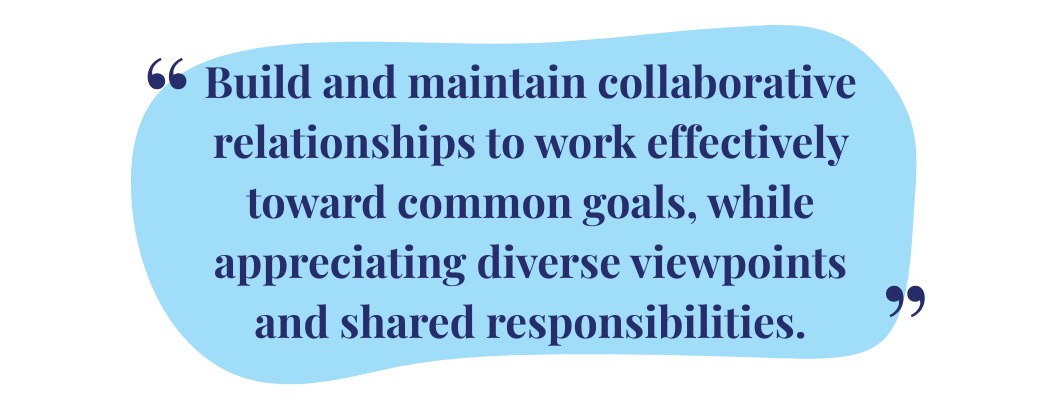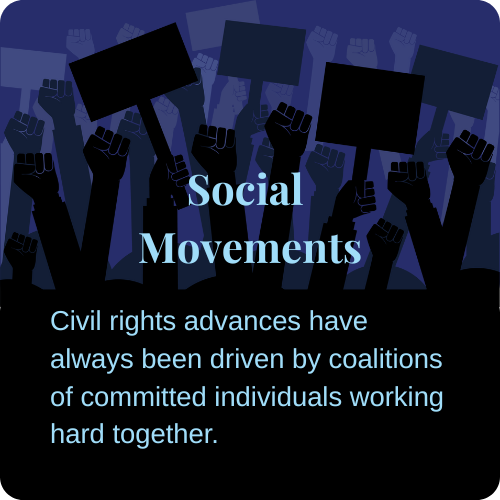Teamwork isn’t just about splitting up the workload: it’s about building relationships, navigating differences, and working together toward a shared goal. Whether you’re collaborating with coworkers, classmates, or community members, teamwork is what’s needed to achieve more than you could alone. As defined by the National Association of Colleges and Employers (NACE), Teamwork is the ability to:

Teamwork helps you contribute meaningfully in group settings, build trust with others, and approach challenges with resilience and shared purpose. Let’s explore what this competency looks like in action.
Teamwork Matters for Distance Learners

The dreaded group project.
While many students cringe at the thought, collaborative projects are assigned because learning how to work with a team is essential. At Aspen, opportunities to work in groups may only arise a few times during your program, but when they do, we encourage you to embrace them! They’re one of the few occasions in an online school setting when you can actively practice the interpersonal skills that are vital in most professional environments.
We know how hard it can be! Maybe your group has different ideas, conflicting schedules, or uneven levels of motivation. It’s frustrating to feel like you have to carry the weight to ensure the end result meets expectations. These challenges mirror real-life dynamics in the workplace, where people are expected to contribute to shared outcomes despite differences.
Teamwork is also essential in everyday life: families, volunteer organizations, sports teams, church groups, parenting partnerships, committees, neighborhood associations, and even social justice efforts. Anytime people come together to achieve a shared outcome, teamwork is involved.
Humans are social animals, and shared knowledge that builds upon itself is one of our defining strengths. You could argue that most of humanity’s greatest achievements have been powered by teamwork:
 |
 |
 |
 |
Podcast episodes to check out for further learning!
Medical Breakthroughs – Sawbones: How Horseshoe Crabs (Probably) Saved Your Life
Social Movements – The Women’s War
Universe Exploration – Ologies: Cosmology (THE UNIVERSE) with Dr. Katie Mack
Large-Scale Infrastructure – The B1M: The World’s Most Impressive Megaprojects (video)
Applying Teamwork in the Workplace
Let’s break down NACE’s sample behaviors and what they look like in practice:
|
Listen carefully to others, taking time to understand and ask appropriate questions without interrupting. |
➨ |
|
| Effectively manage conflict, interact with and respect diverse personalities, and meet ambiguity with resilience. |
➨ |
|
| Be accountable for individual and team responsibilities and deliverables. |
➨ |
|
| Employ personal strengths, knowledge, and talents to complement those of others. |
➨ |
|
| Exercise the ability to compromise and be agile. |
➨ |
|
| Collaborate with others to achieve common goals. |
➨ |
|
| Build strong, positive working relationships with supervisor and team members/coworkers. |
➨ |
|
Building Teamwork as an Online Student
Even in a largely solo academic journey, you’re likely practicing teamwork more than you think. Here are ways you’re building these skills while in an online program:
- Engaging in online discussion boards by responding thoughtfully to classmates.
- If your classmates share their contact information, consider reaching out to compare notes, discuss course topics, and maybe even form a study group that meets regularly.
- Most of our students work, volunteer, or intern, where they engage with supervisors and coworkers.
- Contributing to family or community efforts, such as organizing events, caregiving, or shared responsibilities.
These experiences help you practice listening, reliability, adaptability, and shared success—all core elements of teamwork.
Jump to the other Career Readiness Competencies:
Overview
Career & Self Development
Communication
Critical Thinking
Equity & Inclusion
Leadership
Professionalism
Teamwork
Technology

